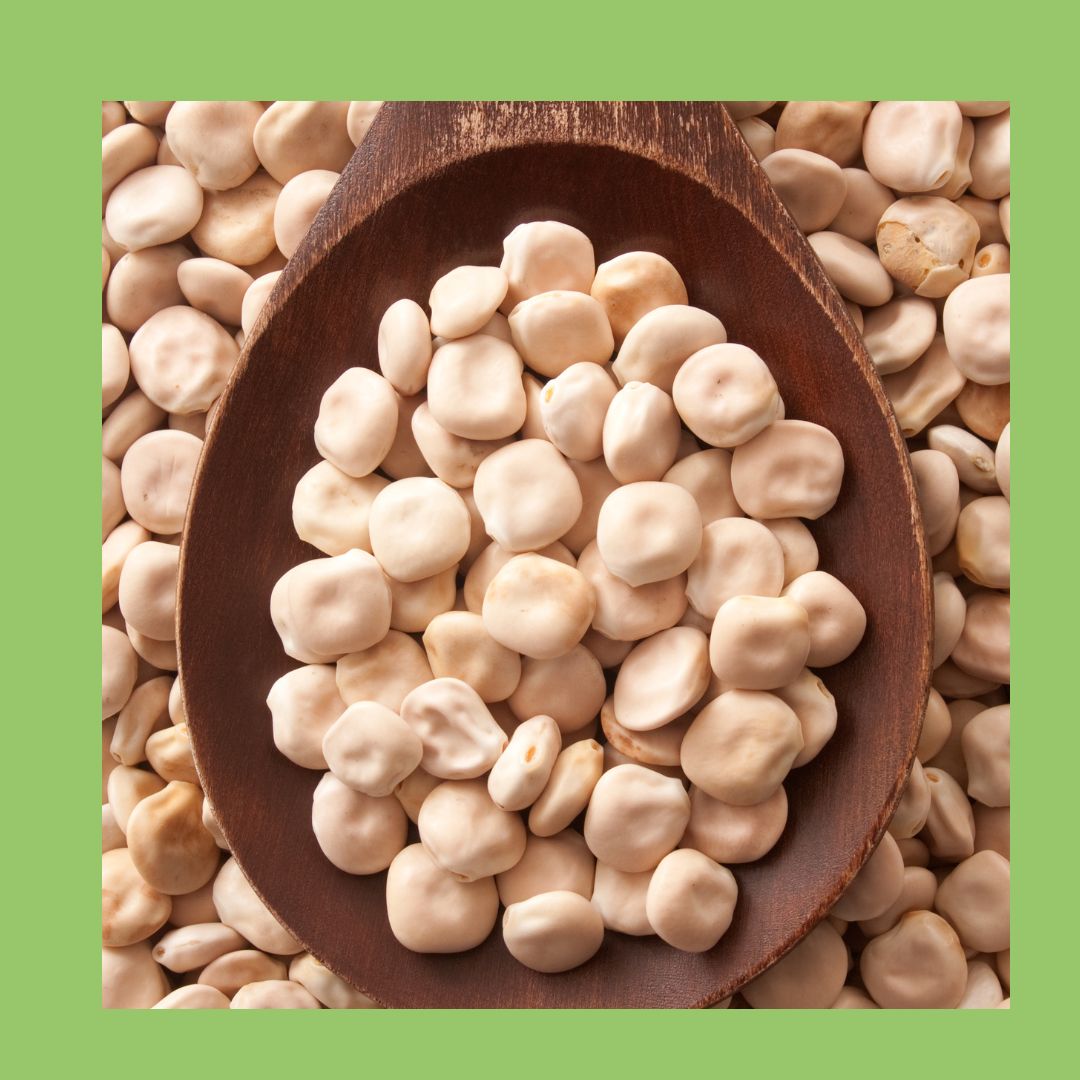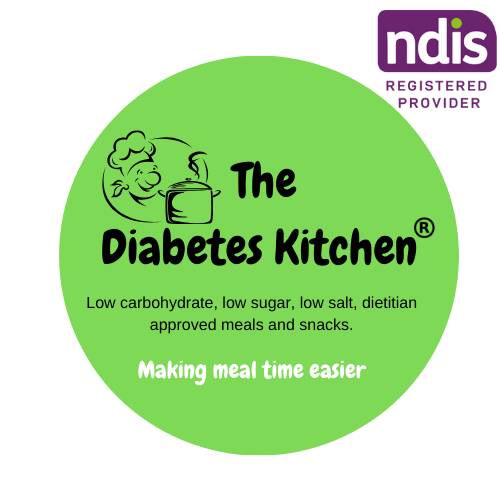Our very good friend and Skinnybiks founder, AProf Antigone Kouris was interviewed by Pulse Pod. Here is what she had to say.
Madaline Dunn spoke to Skinnybik's founder Dr. Antigone Kouris to hear what she's learned about pulses from 30 years working as a dietitian and academic and her passion for promoting lupins in the food industry.
Antigone Kouris is one of Australia's most well-established dietitians. Over the years, she has published over 50 papers in peer-reviewed journals, written three books, contributed to numerous reports for the Australian government and the WHO and worked with a number of renowned scientists and medical nutritionists. She has spent much of her time as an academic researching the Mediterranean diet and geriatric nutrition at Monash University and La Trobe University and also has a private practice where she treats patients with various conditions, especially diabetes.
Through her research, Antigone discovered the power of pulses and the transformative effect that lupins can have on people's health. Inspired by one of her patients, she decided to begin what she said was the hardest but most exciting project of her career, developing her own range of healthy, low-carb lupin biscuits. Along with help from her mechanical engineer husband, Chris Blazos, Antigone created Australia’s only ready-to-eat lupin biscuit range with a 5 health star rating.
Antigone, tell me about yourself and your research into diet.
In Australia, I'm known for my work on the Mediterranean diet. For my Ph.D. thesis, I had the fortune of working with an esteemed medical nutritionist, Professor Mark Wahlqvist at Monash University and we set out to discover why elderly Greek migrants in Australia were living longer than Greeks living in Greece. In conjunction with two international scientists, Professors Antonia Trichopoulou and her husband, Dimitrios Trichopoulos, we developed the first Mediterranean diet pattern score, which led to the publishing of a landmark paper in the British Medical Journal in 1995. Our score has since been used by hundreds if not thousands of scientists worldwide to examine the effects of the Mediterranean diet on different health parameters. I was later involved in another study with Mark Wahlqvist, called 'Food habits in later life,' where we studied 800 elderly people in different countries (Sweden, Japan, Greece, as well as Greeks living in Melbourne, and Anglo Celtic Australians in Melbourne), and looked at what factors affected longevity. Having looked at several factors, including social variables, lifestyle, memory, health and medications, much to our surprise, we found that diet was the most important factor. We discovered that elderly people who were following the Mediterranean dietary pattern - so semi-vegetarian, with lots of legumes - were living longer. That's when I was introduced to legumes and their importance for health and longevity.
When I moved to La Trobe in 2010, I continued my research in this area and my Ph.D. student Tania Thodis studied migrant Greeks again to see if, years down the line, this was still happening, and we found that it's still the case. Having more plant-based food and more legumes in one's diet was found to contribute to successful aging. If you stick with this kind of diet, we even found that you can get away with risk factors for heart disease, such as high cholesterol, diabetes, and being overweight.
So, after all of those years of research and your work at your private practice, what inspired you to move into food development?
To be honest, it was totally unexpected. It all started when I was challenged by one of my patients. I work with a lot of patients who are overweight and have diabetes, and one of them, who had type 2 diabetes, wanted me to suggest a healthy biscuit that she could dunk in her coffee. I couldn't in good conscience recommend any biscuit that was on the market because they were all so high in refined carbohydrates, and didn’t have enough fiber, protein, or good fats, and none had a five star health rating. So, my patient said: "You're the expert. Why don't you come up with your own?" I thought that was a fair call. As a nutritionist, I had some training in food chemistry, so I decided to give it a go. I didn't think it would be so hard, but it's probably been the most challenging thing that I've ever done because there are just so many variables to consider. While trying to make the biscuit as healthy as possible using novel, functional ingredients, you also have to factor in taste, texture, and shelf life - it really challenged my knowledge in nutrition. That said, it's also been the most exciting thing I've done in my career because it's put all my knowledge into something practical but also innovative. I think more dietitians should get involved in food development because it's good for the community.
When I was starting out, I was also very aware of the snacking problem in Australia. Snacking has really increased over the years, especially during Covid. Australians get about 30% of their calories from discretionary foods, such as biscuits, cakes, and alcohol, and there’s a lot of scope there to improve someone's diet. So, I set out to make a healthy, functional biscuit in line with the Mediterranean diet principles to help Australians reduce their calorie intake. I was also very aware that a lot of Australians don't know how to cook legumes, and many people also think they taste terrible; because of that, I had the idea to put legumes into a snack food and to hide them so people wouldn't even know they were eating them. It was a bit of a sneaky approach, like hiding vegetables in bolognese.
Then, I started looking into the research on lupins and was inspired by the research of my colleague at La Trobe University, Dr. Regina Belski. She did her Ph.D. on lupins and lupin-enriched foods and found that when she provided overweight Australians with these foods, their insulin levels and blood pressure had dropped after a year. I found that incredibly interesting, and when I looked at the nutritional profile of lupins, I found that they were low-carb (having less than 10%), high-protein (40% - double to triple more than other legumes), and high-fiber (30% compared to 15% in other legumes). So, I thought, "Wow, I'm going to get them in my biscuits."
I began working on the concept in 2008, and it took me two years of experimenting in my kitchen making thousands of biscuits and playing with the ingredients to develop my recipes before I released the first version in 2012. We launched our second version in 2020.
Can you tell me about the different products you sell and how you're innovating with lupins?
Lupin flour is a functional ingredient, and is the hero ingredient in my innovative recipes. Our current range includes four flavors, and I'm also launching a new gluten-free version. Our chocolate flavor is the most popular, but we also have orange and poppyseed, cranberry and coconut and butterscotch. Our gluten-free version will be lemon and white chocolate chip flavor.
The original version of the biscuits was developed ten years ago and included two gluten-free biscuits with lupin flour and a wholemeal low fodmap spelt biscuit. Version one wasn't low carb, but lower carb, but we did a clinical trial on that version and got great results. However, after receiving consumer feedback, which indicated customers wanted even lower carbs and no sugar, in 2020, I went back to the drawing board to create an even healthier version. This version is skinnier with 17% carbohydrate, 5% sugar, almost double the fiber (18%), and protein (17%) with less than 50 calories each. We've also got a five health star rating. In comparison, Marie biscuits which are often provided to diabetics in hospitals have 75% carbohydrates, 20% sugar, 3% fiber, 6% protein, and 30% more calories.
What's so great about lupins is that they are incredibly nutritious. Besides having more protein, more fiber and fewer carbs than other legumes, they've also got antioxidants and good levels of magnesium. Likewise, they don't have any phytoestrogen (which is found in soy) and they have no anti-nutritional factors, such as saponins, trypsin, or lectins, which can stop the absorption of vitamins and minerals from foods. This means lupin flour/flakes can be eaten uncooked (e.g added to smoothies) which is not the case for other legumes.
We use Australian sweet lupin flour and source our lupin flour from a company called Lupins for Life. The lupins found in the Mediterranean have to be soaked in salt to get rid of the bitterness, but comparatively, Australian sweet lupins don't have any of the alkaloids that create that bitterness.
You mentioned that your biscuits have undergone a clinical trial. Can you tell me more about that and what the study found?
It all started when I was approached by a dietitian who was working in a hospital, Sophie Skalkos. She'd heard of Skinnybik and wanted to trial them in a clinical setting to show the establishment how bad the biscuits they were offering to diabetics were and the detrimental impact they had on glycaemic control while in hospital, which could potentially compromise patients’ recovery from surgery.
The study was conducted on 20 post-surgery patients. The majority of the patients were over 60 (with a mean age of 74), and were all type 2 diabetics with a BMI over 30. It was a controlled non-randomized crossover study and the reason for that was we used each patient as their own control. It was a three-day trial because, on average, patients in Australia don't stay in hospital for more than three days unless they develop complications. So, we had to compress the study. On day one, the patients were given four of Skinnybik’s lupin biscuits and, on day two, they were given Skinnybik’s spelt biscuits. On day three, they were given four Marie biscuits which are sweet, plain biscuits that are a bit like rich tea biscuits.
We hooked them up to CGM monitors across the three days, and we found that their blood sugar didn't change much on day one with the lupin biscuit, but by dinner time, it had started to drop. Subjects also reported less hunger on the lupin day. On day two, when patients were given the spelt biscuits, their blood sugar crept up by 1.4mmol/L.Even though these biscuits were healthier, they didn't contain lupins and that was the difference. On day three, patients were given the Marie biscuits and their blood sugar shot up by 2mmol/L by dinner time. The patients were also eating normal hospital meals, so they weren't on low-carb diets and were having around 120-140 grams of carbs, which meant that just four little biscuits containing a total of 1 tablespoon of lupin flour were able to have a significant effect on blood glucose excursions. We didn't expect that because studies have shown that you need about half a cup of cooked legumes to see this effect.
So, we concluded that heaving four Skinnybik lupin biscuits in a day, providing 1 tablespoon of lupin flour, reduced glycaemic excursions. It appears you need at least this much flour to see a beneficial impact on your blood sugars. That said, in Australia, it's recommended that you have two tablespoons of lupin flour or flakes.
The study was published in the journal Nutrients in 2020, and we postulated that the lupin interacted with the microbiome of the participants in the study. Lupins promote the growth of bifidobacteria in the gut, which produce short-chain fatty acids and that can delay gastric emptying, which is why we think we saw that delayed effect, otherwise known as the 'second meal effect,' because that's how much time the lupins needed to be fermented by the bacteria.
What is your current distribution and which markets have been most receptive to your products?
We sell our products primarily online and get a lot of interest through social media advertising. I sell a lot of Skinnybik biscuits to my patients, too - they buy them by the box (which contains 100 biscuits). Due to Skinnybik biscuits being a functional snack food range shown to reduce hunger and glycaemic excursions, we have interest from companies specializing in ready to eat meals for weight loss and diabetes such as Diabetes Kitchen and Be Fit Food. Likewise, I have them on a website called Snack Proud, delivering healthy snacks to offices and homes and we also sell them through a website that specializes in supplements for bariatric patients. We're also exploring vending machines as another possible market; there's a push for hospitals to start offering more healthy snacks through that avenue. We're looking into healthy snacks for gamers, too, and have been contacted by a company in that area. We’d also love to get them into cafes and smaller supermarkets. We have also had interest from the Middle East because of the high prevalence of diabetes there.
How has the pandemic affected business? Are Australian diets changing, and have you found more consumers are turning to lupins for their health benefits?
A lot of Australians don't know what lupins are. They think it's a disease - they think you mean lupus! So, I'm trying to educate them and I do that through my social media channels and my website.
Skinnybik’s biscuits have done very well and my sales have increased dramatically with the launch of my new biscuit range. The brand has new packaging, my website is amazing and I've become savvier with social media - all these little things help. That said, I don't think their popularity has increased because of lupins. I think the spike has come from advertising them as low-carb - there's a big push towards that in Australia. My five-star rating has helped, too.
Snacking habits have changed during the pandemic and snacking has increased by 400% in the last ten years. Throughout covid, statistics indicated that, on average, Australians had gained between three and four kilos. My private practice has boomed in the pandemic, too. I'm seeing many more patients. People are definitely more concerned about their health and weight and have had more time in lockdown to think about that.
While you've said that progress has been slow around raising lupin bean awareness, it appears that they're on the precipice of a big boom - what do you think is ahead for the pulse, and what are Skinnybik's plans for the future?
Lupins are a great crop and brilliant for the environment, and, in fact, around 85% of global production happens in Australia. Here we have both lupinus angustifolius and lupinus albus (the sweet version, not the bitter version from the Mediterranean). The interesting thing is that lupins need less water; they're pest-resistant and grow in poor agricultural conditions, so that's a plus, especially considering we're quite a drought-prone country. So, you'd think it would be a logical crop to have more of. They also improve soil fertility and they have 40% protein compared to wheat, which is only 10%, plus lupins have all the amino acids. So, if you combine wheat flour with lupin four in baked goods, you have a much better final product.
I think there's a great future for companies coming up with novel products using lupins; they are slowly creeping into the food supply. For example, there's a bread brand in Australia called Alpine, and they’re promoting their product as 81% lower in carbs than regular bread. One of the key ingredients, however, is lupin beans but nowhere on the front of the packaging does it say that - so obviously, they've decided people aren't ready for lupins. If companies start promoting that they are using lupins, it will help to raise their profile.
Regarding what's ahead for Skinnybik, we will be trying to enter the markets I mentioned and continue educating the public about the health benefits of lupins.





